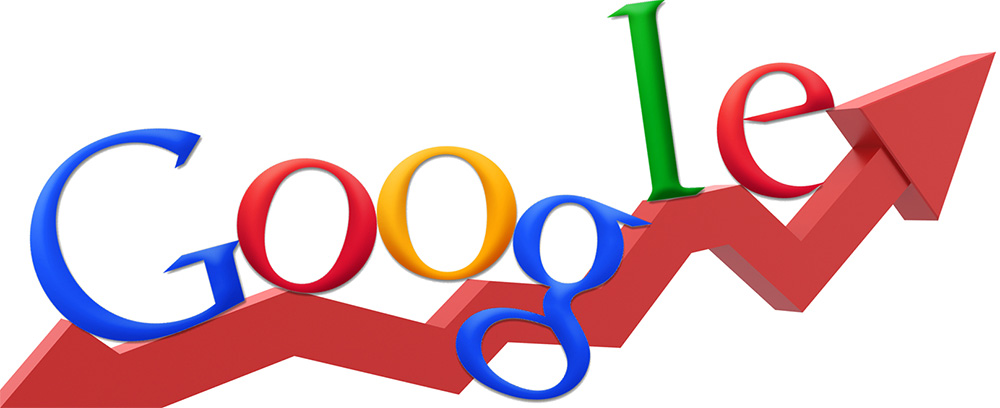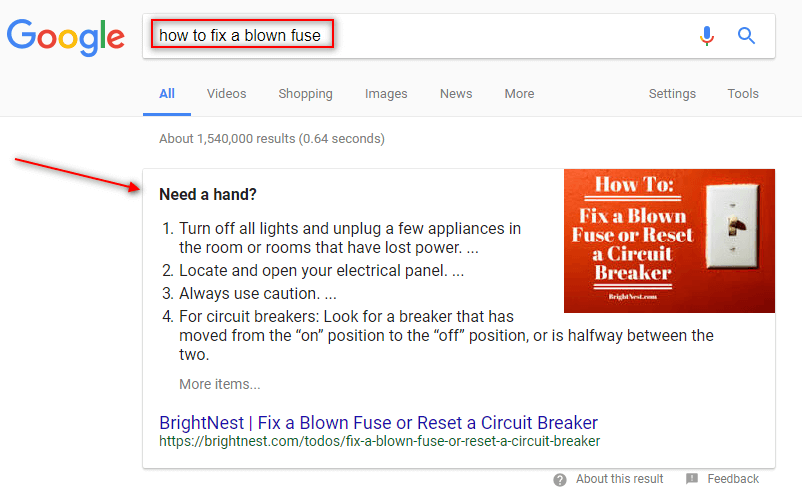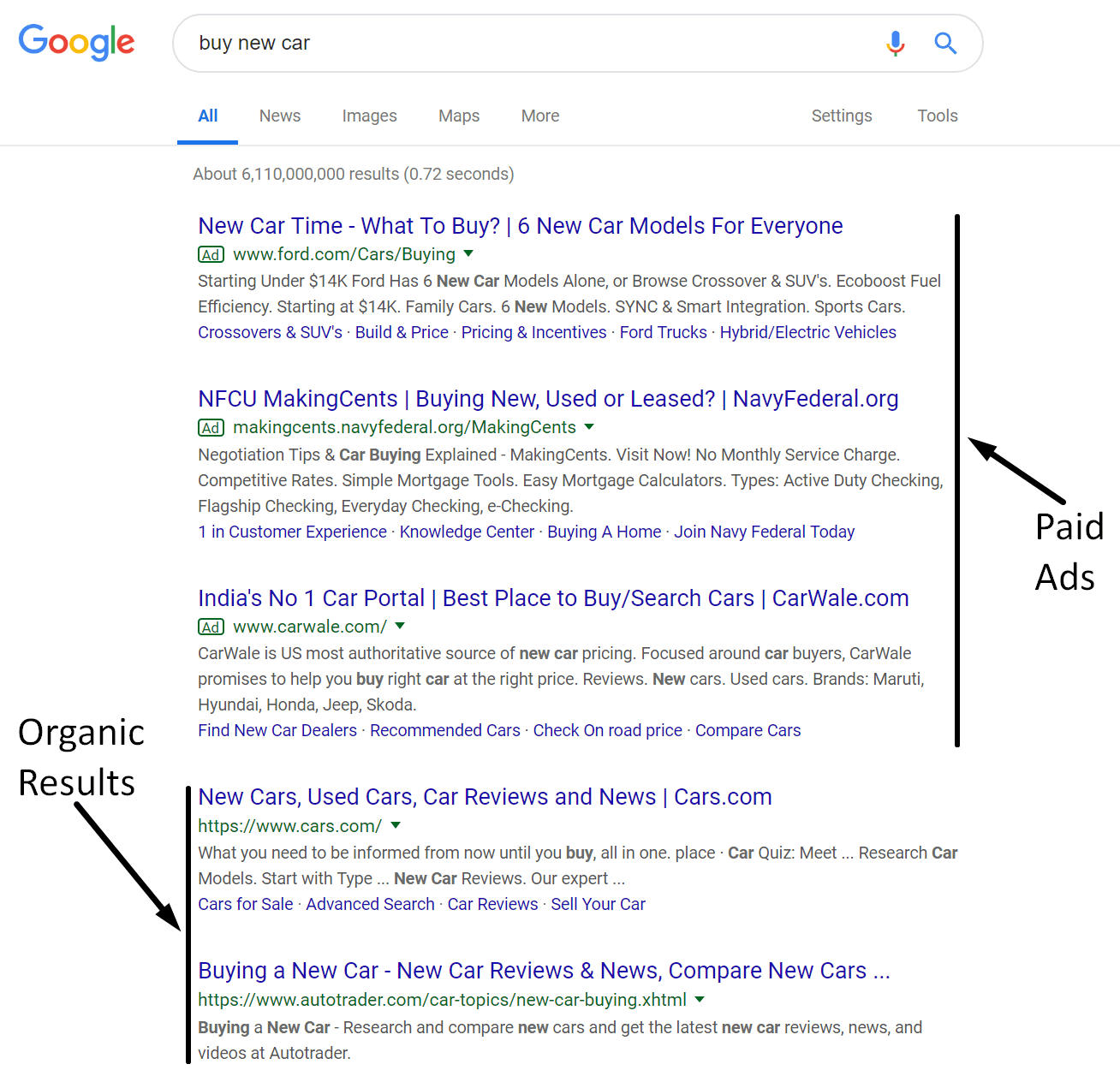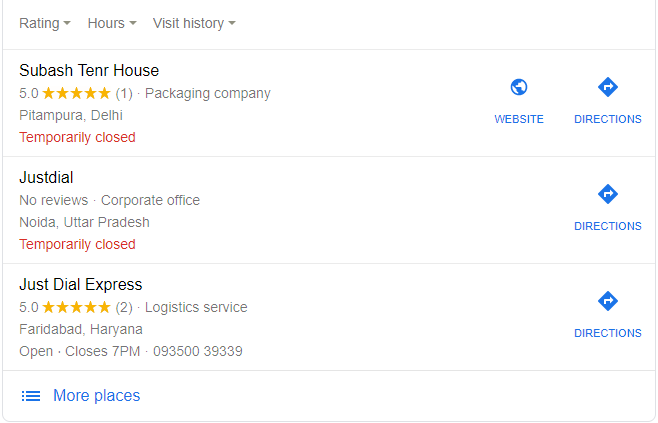
How To Rank On The First Page Of Google [2024]
Google’s search results are getting more vigorous with knowledge panels, answer boxes, local results, expandable related questions and more. With innumerable ways to stand out, working for top ranking is well worth the effort.
Top ranking means higher Click Through Rate
It’s a well-known fact that the first page of Google draws in the majority of traffic, but did you know that there are significant differences in clickthrough rates for the top vs bottom results?
- First Result: 36.4% click through rate.
- Second Result: 12.5% click through rate.
- Third Result: 9.5% click through rate.
The clickthrough rate continues to decline, down to 2.2% for the 10th result (there are usually 10 organic results max per page, even less now with local results, ads, answer boxes, and other new features. If you’re not at the top of Google search results, you are missing out on a lot of clicks.
Get More Exposure
Don’t forget that top results for Google searches now also populate “Position Zero” answer boxes, like the one shown below:
Earning a top spot on Google could lead to getting featured in one of these first-page snippets, granting your business immediate exposure and increasing your credibility.

How do First Page Ranking Benefit your Business
It’s the first page of GOOGLE. What more is there to know? There’s a lot to know, actually. It’s crucial to understand the different goals that top ranking can help your business to achieve.
1. Improve Visibility
With 167 billion searches per month, getting on the first page of Google is like planting your business on the busiest road in town. The more people that see your website, the greater your brand awareness. The more familiar consumers are with your brand, the more receptive they will be to conversion activities.
2. Generate More Leads
There are as many Google first pages as search queries that are out there. Your goal is to get on the first page for queries that your ideal customers are presenting. By doing so, you get discovered by consumers that are searching online with the intention of buying or engaging. These people are the most likely to convert into leads and customers for your business.
3. Increase engagement
Approx. 80% of shoppers conduct online research before buying, and Google is the go-to for this. With answer boxes, and local results showing contact information, maps, reviews, and descriptions, Google’s search engine results page alone enables consumers to learn about, compare, and engage with your business before even clicking on your result.
4. Drive Website Traffic
Snippets and answer boxes can only provide so much information. While a search engine results page itself can sometimes supply all the information a person needs, there are still numerous queries for which people will automatically click through to a website. Don’t forget that it often takes several engagements with a business before a person converts into a customer, so interactions with your website are important.
Not only does being on the first page of Google increase traffic to your website; not being on the first page of Google has a huge disadvantage. In fact, the first page of Google captures at least 70% of web traffic and the second page is far from a close second. This precipitous decline in web traffic is an indicator of just how crucial the first page of Google is.
5. Increase Authority
Getting on the first page of Google requires regularly creating high-quality content that Google recognizes is satisfying the needs of its searchers. This takes time, but the increased traffic and trust that will result is well worth the investment.
In addition, writing regularly about your industry and business will require you to stay in tune with what your target audience wants to know as well as what the latest updates are in your industry. Appearing on the first page of Google is significant because it facilitates the development and maintenance of a vigorous knowledge base upon which your business can firmly stand.
6. Earn Trust
Google’s algorithm is designed to recognize spam, suspicious, and low-quality content. If you’re consistently showing up on the first page of Google, it means that Google recognizes you as a trusted source of information, and consumers trust businesses that Google trusts.
7. Build your Audience
As mentioned above, getting on the first page of Google requires creating high-quality content. This type of content keeps on giving; it can be repurposed and redistributed across a variety of marketing channels including social media, email, and paid ads.
Your content-driven efforts to get on the first page of Google will provide you with more material and more opportunities to engage with your target audience, nurture leads, and stay top of mind.
Getting on Google Organically

The other way to get on the first page of Google is the organic method. These are results that show up below the ads and local map section on search engine results pages. These results cannot be achieved by paying Google money. They are achieved with attentive and long-term optimization of several factors that Google uses when ranking relevancy. The practice of optimizing web presence for it to show up organically on Google is called Search Engine Optimization (SEO).
1. Start title tags with your target keyword
Your website may be right up on the Google search results page with the appropriate keyword, channeling a huge amount of traffic to your website. The closer the keyword is to the starting of the title tag, the more weight it has with search engines. You can see this in operation by searching for the competitive keyword in Google.
2. Write meta descriptions for each page
Meta descriptions are one of the most crucial and visible facets, next to your title tag and URL- that convince people to click through.
If you want traffic on your latest article and on your website, make sure that the meta descriptions are striking and informative. Remember that you too click on a specific result after reading it’s meta description. Pay attention to the meta descriptions, and you will see the results.
3. Put your target keyword in the URL
As keywords are the backbone of on-page SEO, you need to pay a lot of attention to them. There is no reason not to include them in your URLs. The inclusion has its benefits. When you incorporate the targeted keyword into the URL, you are ensuring that Google considers your article as more relevant for a particular phrase.
4. Long Tail keywords
Long tail keywords are queries that are more specific than more conventional “head” keywords.
Long tail keywords are not as competitive as short tail keywords. If you have just started your SEO campaign for a brand-new website, then we would definitely recommend concentrating on long-tail keywords.
Make the keyword as long as possible and use Google’s keyword planner to find a relevant keyword for future references.
5. Optimize for Mobile
You will not see a website at the top of a Google search page that is not responsive. Consumers now use phones and tablets more than laptops and computers, and the majority of local searches are performed on mobile devices. As a result, Google favors mobile-friendly websites. Responsive is crucial, as your website will adapt to any size screen and maintain functionality.
6. Focus on User Experience
A website with instinctual navigation, clear calls to action, and answers to your visitors’ most immediate questions will keep visitors there longer and coming back later which Google will notice and, in turn, rank you higher. The higher you rank, the more traffic you are likely to get to your site, and the more likely you are to show up on the first page.
How to use your Business Listings to get on the First Page of Google?

1. Create a google my business listing
Google My Business is evolving into one of the most powerful (not to mention free) tools for local business owners. Both Google Maps and Search pull from Google My Business listings to show local results. Creating a Google My Business profile is a fast and easy way to get your business on the first page for location-based searches. Make sure you follow through with claiming and verifying your listing so that you can monitor, maintain, and optimize your listing.
2. Optimize google my business listing
Don’t just create a listing and hope that it shows up for one or two searches. Optimize your Google My Business listing for maximum visibility.
3. Complete every section of your profile
The more information you include in your Google My Business listing, the more searches for which it can show up on the first page. In fact, complete Google My Business listings get, on average, 7x more clicks than incomplete listings.
4. Keep your name consistent
Use the same exact name for your business at all times. Google doesn’t like discrepancies—even those as minor as “Co.” vs “Company”
5. Update your information
Not being able to find your business, showing up to find it closed, or getting an operator when trying to call can not only deter a customer, but also lead them to distrust your business or write a negative review. Stay on top of your Google listing and make the necessary updates and changes so that it can be trusted enough to be at the top of the list.
6. Obtain Google Reviews
Google searchers love to see what other people think about a business, so it’s no surprise that the businesses with more positive Google reviews show up on the first page. Ask customers in person and create a review shortcut link so you can easily encourage reviews across your online channels.
7. Upload photos to your listing
Google My Business strives to equip consumers with as much information about a business as possible, before even encountering that business. This includes what it’s like to be at that business, so be sure to upload photos that depict not only the products and services your business offers but also the atmosphere and people that frequent it.
8. List Your Business on Other Directories
Google My Business is powerful, but you should still create and optimize listings on other popular directories. First, so your business’s page can very well show up on the first page of Google for relevant searches. Second, because a solid listing with positive reviews enhances your online presence. Online review and links from other trusted sites send signals to Google that appear into its ranking algorithm.
As with your Google My Business listing, make sure the rest of your online directory listings are complete and accurate, consistent across platforms, updated, and that you are collecting and responding to reviews. Don’t forget to add photos to your online listings as well.
How to Use Ads to Get to the Top of Google
It’s free to get your website pages to show up first for organic results, but this can take time, so a paid search campaign can be a great option for the meantime. Paid search ads are the results that show up at the top of the first page of search results. Read on to learn about how they work and how you can use them for your business.
What are Google Ads?
Google Ads is a program where you pay for pages of your website (ads) to show up at the top of search results pages for specific queries. However, higher pay does not equate to higher rank. Google has an algorithm for its paid results as well, so when someone searches the keywords you are bidding on, Google compares all of the ads that are bidding for that keyword and, depending on your ad relevance, budget, and other factors, you may or may not show up first in results. For this reason, you only pay when someone clicks on your ad and lands on your website (pay per click model, or PPC).
How to Succeed with Google Ads
There’s a lot to pay attention to when running a Google Ad. Here are some quick tips to ensure that you’re getting the most out of your first page appearances on Google:
- Implement tracking with tracked phone numbers and links
- Write competitive ad copy
- Take advantage of ad extensions
- -A/B test your ads
- Use negative keywords
- Optimize your landing pages for conversion
- Keep track of campaign metrics
While it is possible to run a Google Ad campaign yourself, your best bet is to let an expert do it for you so they can make the most of your budget.
Getting to the top of Google, or even just improving your ranking, is very doable, even for small businesses. It takes work and time, but it is one of the most important things you can do for your business. By knowing where and how to make adjustments, you can get your business the visibility it deserves.


